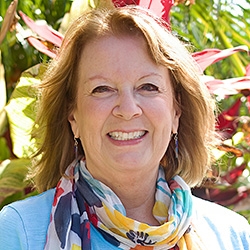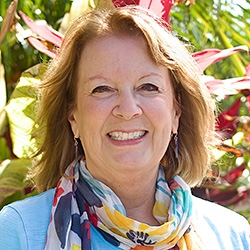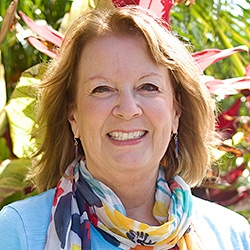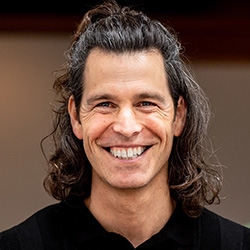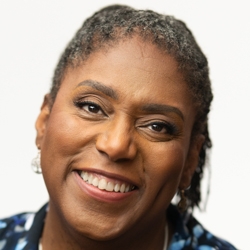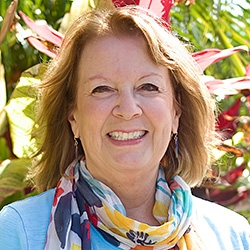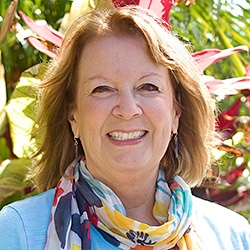

Search Results: experiencing
-
It's important to make requests specific and doable. Also, without a swift request immediately after we state our observation, feeling, and need in regard to the situation, the other person is left guessing what we want. Instead, a swift request can bring clarity and lessen the potential for the listener to become defensive or argue.
-
- Strengthen embodied awareness
- Integrate inner and outer worlds to create a connecting "corridor"
- Identify projected images that prevent connecting
- Embrace fear and transform reactivity
- Create a support network where you can express and be heard
-
Join CNVC Certified Trainer Jerry Koch-Gonzalez, Greg Rouillard and Certified Dynamic Governance (Sociocracy) Consultant John Buck for this six-session course recording to learn how to transform your method of meeting facilitation. Many NVC organizations have begun using sociocratic tools, including circle meetings and decision making by consent, with satisfying results.
-
- Easier and steadier access to presence, awareness and self-connection in relationships and challenging situations
- Illumination of basic Buddhist and NVC principles
- A deeper understanding of how to live the Buddhist precepts of non-harming, mindful speech and deep listening
- An introduction to useful tools for families and communities to create a culture of Nonviolent Communication
-
- Find intuitive guidance for bridging divides
- Connect to deep needs that have been habitually ignored
- Discharge the anxiety held in old, embodied reactions
- Make decisions and take actions that align with your values
- Cultivate resources for more enjoyably and more capably building relationships
-
Trainer Tip: Even when you hit deep emotional bottoms, instead of deciding whether something is good or bad, get clear on how you feel about it and what needs it will or will not meet. Let the Universe do the rest. Then take action to resolve any situations that are not enjoyable to you.
-
Trainer Tip: Meetings can be unproductive when the participants aren’t clear about their needs or what they want from the group. When participants express opinions without expressing a need or informing the group of what they want, the meeting lacks clarity. Instead, if we can focus on naming our needs and make related requests, we can get closer to resolution much faster and enjoy the process more. Read on for an example.
-
Some things may seem to take longer at first, but end up making things easier and faster. Other things seem easier or faster in the short term, but end up taking more time in the long run. This applies to projects, group agreements about process, relationships, addressing conflicts, clearing up misunderstandings, damage control, etc. It can be faster to slow down, be more present, and take the time since we care about the outcome.
-
- Welcome unpleasant feelings and meet their flow in and around the body
- Discover how you can enjoy Anger as a beautiful life force
- Realize insecurity and depression as a door to the core of your humanity
- Know how to use fear to firmly connect to your life and strength
-
It's tempting to shut down a heated conversation when it’s painful and overwhelming. What can give us strength to stay open to hearing and being moved, to being open to new possibility, is recalling the “triad of conversation.” The triad is self and other and then awareness on the third side of the conversation. Here we can return to connection, to what we share and need in common, to a searching together for the way forward.
-
How do we talk to ourselves and with others about polarizing topics in a way that's supportive? Seek to understand and be understood rather than press for agreement. Bring mindfulness into the conversation. Slow down and use structure to support everyone. Release knowing the solutions, answers or outcomes. Keep focus on shared universal needs. From this place we can say what's in our hearts and minds, and trust the process.
-
- Explore ways of parenting that will shape a future full of purpose and possibility
- Discover how your values can serve as a compass to guide you forward
- Understand the relationship between your present actions and desired outcomes
- Gain experience in balancing your child’s present needs with long term visions!
-
- Inscrease compassion for yourself through understanding why your capacity may lag so far behind your commitment and what you can do to bridge the gap
- Higher Compassion for your children as you understand better what life is like from within their own experience rather than from the outside looking in
- Surge in energy that you can put into new conversations with them designed to make agreements that are based on the truth of where you all are rather than on any "should"
-
Trainer Tip: Notice where you're judging or blaming people for not meeting your needs. Strive instead to notice and name the related feelings and needs longing to be met. Ask a question to check with the other person about what they want and need. This can open up the conversation towards mutually beneficial solutions.
-
NVC is a process. It’s the willingness and effort to empathize with both sides of a conflict, encouraging each side to empathize with the other, and then seeing what solution can arise, working together to meet the needs of both sides. Empathy is the experience of being not separate as well as being an individual. It's seeing we're all part of the one ever-flowing consciousness of being, all unique expressions of this unity.
-
We can shift from being absorbed and identified with our inner chatter and feelings to being the space of awareness of these things. Observe your breath. Then observe your mind generating thoughts. Next, feel sensations of your body, particularly the difficult ones. Now, connect with the underlying energy of needs. Ask your unconscious mind for universal needs words related to what you now notice, think and feel.
-
When we feel pain about humans relate to, and conflict with, one another on Earth what can give us capacity to transform it? Perhaps in connection to the formless consciousness of unity we may relax, open, expand -- and connect to formless human needs, a sense of universal well being, benevolence and good will. Loving action flows from here. Suffering shifts into deep healing, grace and new possibility.
-
Trainer Tip: Sometimes the expression of our needs can sound like demands or criticism. This can make it harder for people to want to contribute to us. Today, pay attention to how you express your needs. Find ways to release the emotional charge.
-
Trainer Tip: It can be more productive and satisfying to focus on what we want than on what we don’t have or don’t like. What will help rectify the situation? What would you like someone to do now or next time? This can eliminate much of the emotional pain caused by berating yourself or others. The moment your focus is on what is wrong with your life or what's lacking, take a moment to shift it to what you want.
-
No one on their deathbed wished they worked more. Working is unlikely to bring a meaningful life. And yet greeting friends with survivalist expressions, such as, "I'm dead-tired", can feel like affirming our own worth. Taking time off can bring inner spaciousness, ease, rest and consequently time to meet life, to really meet it. Which brings more clarity into the question of what we would like to celebrate on our deathbed.

Quick Links
Subscription Preferences
Stay In Touch!
Looking for ways to keep up with NVC Academy news, get special offers, free resources, or words of inspiration? Here are five ways to stay engaged:

